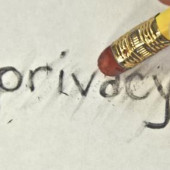Our office is proud of the work we do in the area of dispute resolution. Where it is appropriate, we try and bring complainants and respondents together, in person or by phone, to resolve privacy disputes. Last year, we closed 827 complaint files and of these, nearly half were achieved with a settlement between the parties involved.
We’re therefore pleased to have been included in a pilot project aimed at leading and strengthening the use of dispute resolution by government services and agencies.
Dispute resolution works!
Dispute resolution is about trying to resolve disputes between parties so that they don’t end up in court. We’ve found that a resolution might include an apology or an acknowledgement, a promise of confidentiality, a change in an agency’s processes, staff retraining, or a compensatory payment.
Many New Zealanders have learned the hard way of the time, cost and emotional drain of litigation, and the substantial delays inherent in the court process.
And for some time now, the government has recognised the benefits of dispute resolution, and that it should be doing more of it.
As a result, the Ministry of Business, Innovation and Employment has established the Government Centre for Dispute Resolution (GCDR), a two year project to support the further development of dispute resolution.
Making better policy
Last year, our investigations and dispute resolution team leaders were selected to participate as members of the centre’s Officials’ Advisory Group - a panel made up of representatives of government agencies with dispute resolution expertise.
Before it established the advisory panel, the GCDR reviewed all of the statutes in New Zealand that allow for the use of dispute resolution, in some form or other. It discovered at least 60 statutes provide for dispute resolution services, and up to 200 contain some kind of reference to it.
It also found a wide variability in the way these provisions were interpreted and applied by government agencies (if they were even being used at all). The GCDR is now focused on helping New Zealand agencies achieve a level of consistency in this area.
Our input
Our participation in the advisory panel was concentrated largely on the development of the best dispute resolution principles. These are a set of key criteria that any good dispute resolution service should take into account.
The principles are based on common sense (such as being objective and fair, being client focused and ensuring you are accountable for what you do), and come with guidance about how to achieve these objectives at policy, service design, service delivery and practitioner levels.
We support the work being done by the GDCR and look forward to seeing what comes next for New Zealand and its dispute resolution services.
Image credit: Created by Ruth Suehle for opensource.com.
Back

